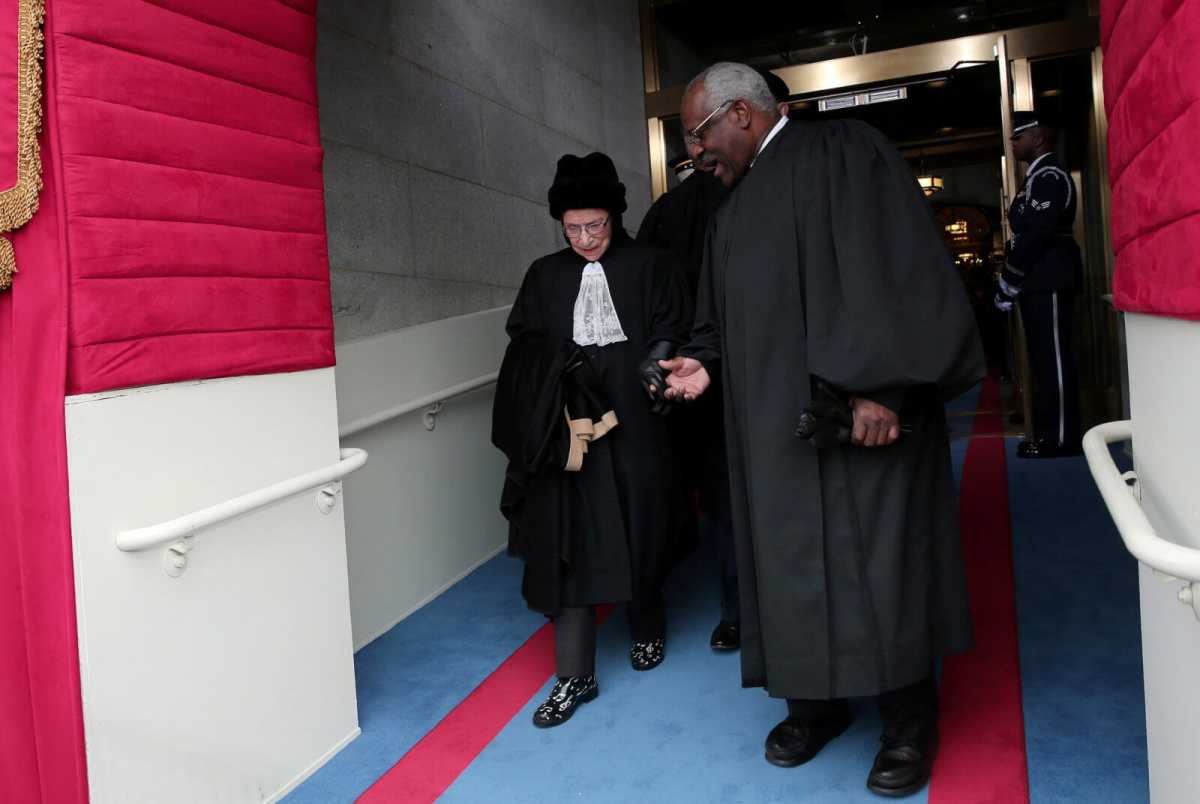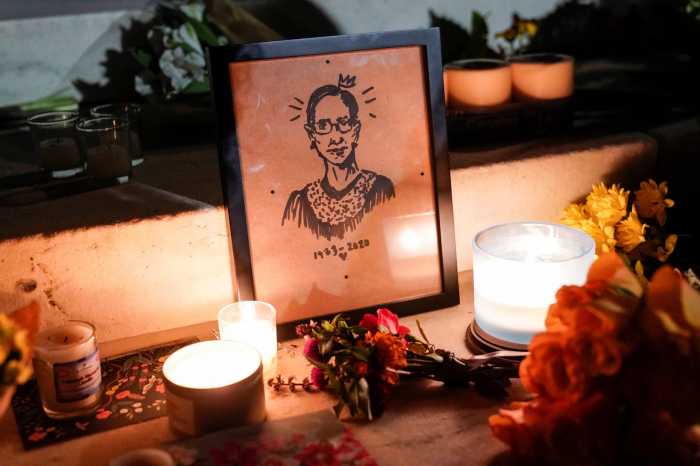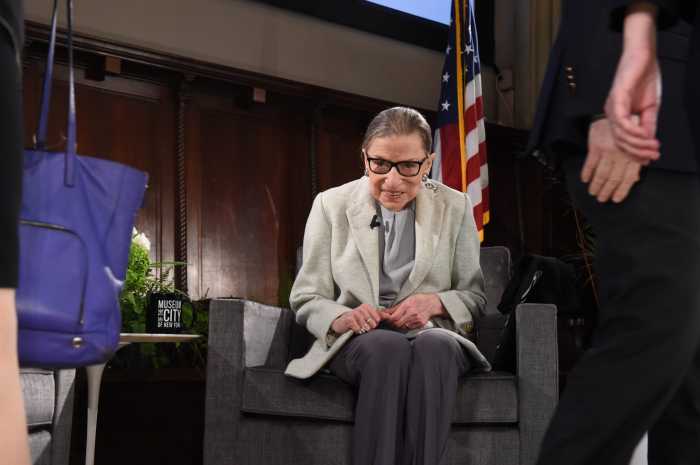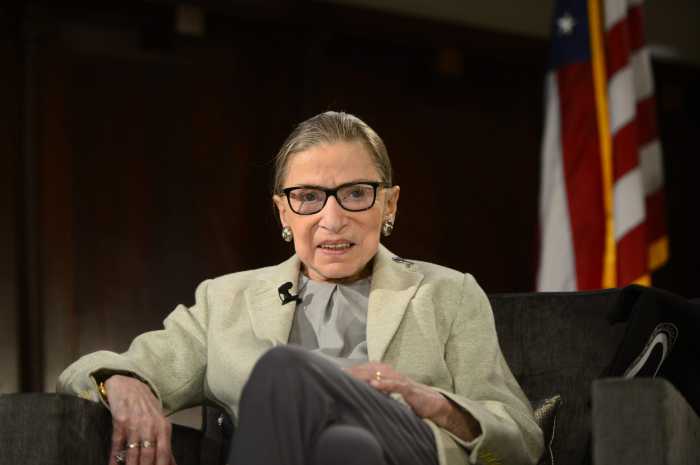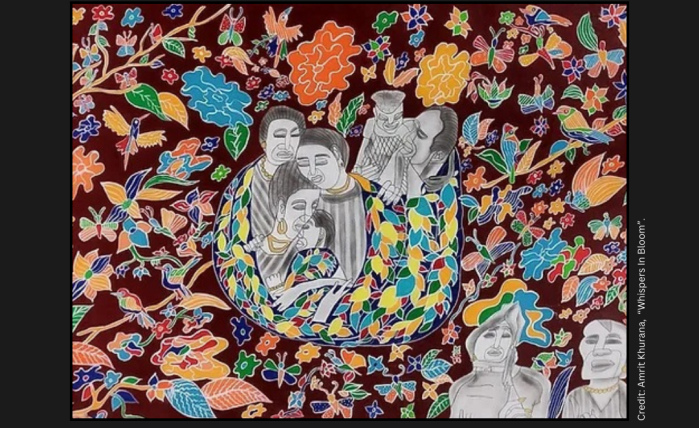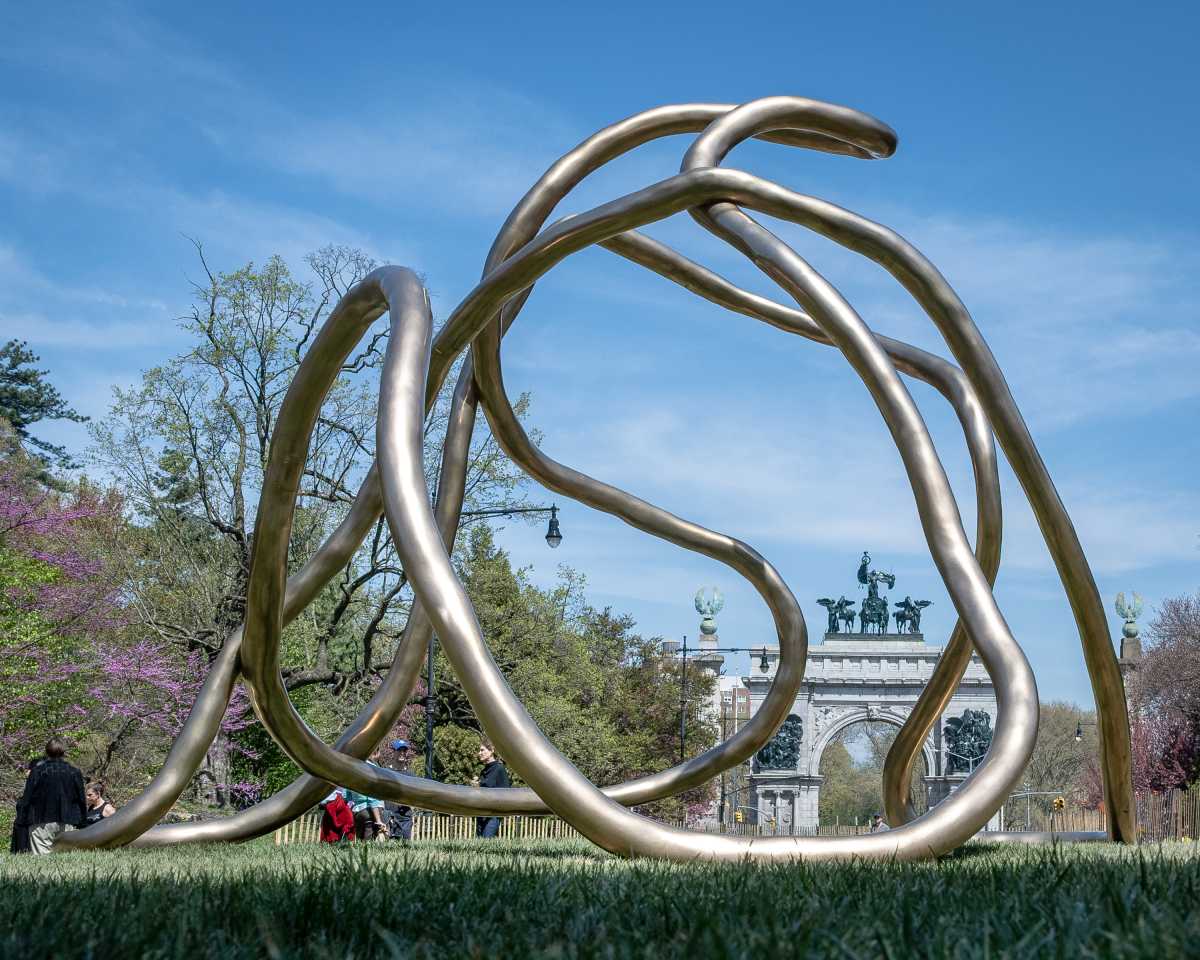BY PAUL SCHINDLER
In a disquieting signal on the first day of the new Supreme Court term — with the Republican Senate hell-bent on appointing a sixth conservative justice in Appeals Court Judge Amy Coney Barrett — Justices Clarence Thomas and Samuel Alito took the opportunity of a unanimous denial of a petition for review of an appeals court ruling to vent their continued opposition to the 2015 Obergefell marriage equality ruling and to argue that until its flaws can be “fixed” it “will continue to have ‘ruinous consequences for religious liberty.’”
Thomas’ arguments were sufficiently alarming to prompt Chase Strangio, an attorney with the LGBT & AIDS Project at the American Civil Liberties Union, to take to Twitter to warn, “First day of the SCOTUS term and Alito & Thomas call for the overturning of Obergefell.”
The nearly-1,100 word statement was not a dissent, and given that none of the other three conservative justices currently on the court — including Chief Justice John Roberts, who dissented bitterly from Obergefell five years ago, and his two post-Obergefell colleagues Neil Gorsuch and Brett Kavanaugh — joined the statement, it is unclear what conclusions can be drawn from this latest outburst from Thomas.
The case giving rise to the Thomas-Alito statement was an appeal by Kim Davis, the recalcitrant Kentucky county clerk who refused to issue marriage licenses at odds with her official responsibilities, of a Sixth Circuit Court of Appeals ruling that affirmed a district court decision finding that she did not have “qualified immunity” as a government official from liability for damages claimed by two gay couples to whom she refused licenses — David Ermold and David Moore, and James Yates and Will Smith.
Though Thomas voiced concern that one member of the Sixth Circuit panel inappropriately characterized Davis’ “sincerely held religious beliefs” as “anti-homosexual animus,” he agreed that her appeal should be rejected, writing that the question of her “qualified immunity” claim “does not cleanly present” the concerns he has about Obergefell’s religious liberty implications.
Thomas’ statement, in some respects, merely rehashed the harsh feelings he and Alito have harbored for more than five years now since Obergefell was decided.
Citing arguments made at the time by Roberts and by himself, Thomas wrote, “In Obergefell v. Hodges… the Court read a right to same-sex marriage into the Fourteenth Amendment, even though that right is found nowhere in the text. Several Members of the Court noted that the Court’s decision would threaten the religious liberty of the many Americans who believe that marriage is a sacred institution between one man and one woman. If the States had been allowed to resolve this question through legislation, they could have included accommodations for those who hold these religious beliefs.”
Though Thomas acknowledged that Justice Anthony Kennedy, in his majority opinion in Obergefell, noted that marriage equality opponents include “decent and honorable” people, Thomas saw elsewhere in that opinion the suggestion that such opposition inherently reflects “a bigoted worldview.” The reference in the recent Sixth Circuit decision regarding Davis’ “qualified immunity” claim evidencing “anti-homosexual animus” merely confirmed that suspicion, in Thomas’ mind.
In fact, he argued, Obergefell unfairly put Davis in an untenable position.
“As a result of this Court’s alteration of the Constitution,” Thomas wrote, “Davis found herself faced with a choice between her religious beliefs and her job. When she chose to follow her faith, and without any statutory protection of her religious beliefs, she was sued almost immediately for violating the constitutional rights of same-sex couples.”
Thomas here, then, is suggesting that Davis’ religious views should exempt her from her official government duties under the law. That perspective is at the extreme end of arguments that have been made about the right of individuals to claim religious exemptions from laws generally applicable in society.
The most famous LGBTQ-related religious exemption case to date was the 2018 Masterpiece Cakeshop decision by the Supreme Court. There, baker Jack Phillips claimed a religious exemption from Colorado’s nondiscrimination law in refusing to make a wedding cake for a gay couple. In a 7-2 ruling, the court found for Phillips, but not on his claim to a religious exemption but rather on his argument that some members of the state authority that penalized him had shown hostility to his religious views. Kennedy’s majority opinion noted that existing precedent on the high court does not recognize a religious exemption from a law of general application not specifically targeting religious practice.
Numerous cases have proceeded through the courts regarding similar conflicts over state nondiscrimination laws. Now that the high court, in the June Bostock case, has recognized that Title VII of the 1964 Civil Rights Act provides protection against employment discrimination based on sexual orientation and gender identity, religious exemption claims will also inevitably arise in terms of federal law.
To date, however, the Supreme Court has not directly ruled on the question of whether religious exemptions can be asserted in situations where LGBTQ people are protected by nondiscrimination laws or government policies.
That may soon change. The day after the presidential election, the Supreme Court will hear arguments in an appeal of a Third Circuit Court of Appeals ruling that rejected claims by the Catholic Social Services agency in Philadelphia that lost its foster care services contract with the city by refusing to work with same-sex couples.
The views of Thomas and Alito on this question are, of course, obvious. If Barrett is confirmed ahead of the election and seated on the court in time for the arguments, statements she has made over the years essentially indicate she too would be sympathetic to the Catholic agency. (She has also said that Obergefell is misunderstood as a decision about marriage equality rather than “who gets to decide” — the courts or the legislative branch of the government.)
That means that the position of the city of Philadelphia could only be upheld if it is able to win over two of three of the remaining conservatives — Roberts, Gorsuch, and Kavanaugh. Roberts raised religious liberty concerns in his Obergefell dissent and he joined Alito’s majority in the startling 2014 Hobby Lobby case that allowed that company to assert a religious objection to complying with the contraceptive coverage requirement of the Affordable Care Act. Still, Roberts’ specific thinking on the Philadelphia case is not yet clear.
Nor are the views of either Gorsuch and Kavanaugh.
It’s worth noting that, in 2017, Gorsuch, joined by Thomas and Alito, dissented from a ruling that the state of Arkansas’ refusal to apply the legal presumption that the spouse of a birth mother is the parent of that mother’s child violated the 14th Amendment as construed in Obergefell.
That dissent suggested that Gorsuch was unconvinced about the breadth of the 2015 marriage equality ruling, which certainly raises a concern.
Still, it’s unclear whether Obergefell would in fact make an appropriate vehicle for settling the religious exemption issue. Davis, the Kentucky county clerk, went about as far as anyone has in making a religious exemption claim — arguing she could neglect her official duties based on her faith. That may not be a winning argument for five justices.
The Philadelphia nondiscrimination policy or a challenge in a Title VII case seems a more likely avenue for this issue to be addressed. In that context, it’s worth noting that cases like Masterpiece Cakeshop — though popularly described as “gay marriage” cases — have in fact been disputes about nondiscrimination requirements of the law, not about Obergefell.
So, in the end, Thomas and Alito this week might in fact be accomplishing little more than letting off some of their ever-bilious steam. At the same time, it would be a missed opportunity for Democrats in the Senate if they fail to press Barrett on Thomas’ statement should hearings be held on her nomination.
The ACLU’s Strangio was far from the only LGBTQ legal advocate raising the alarm about the Thomas statement.
Kevin Jennings, the CEO of Lambda Legal, in a written statement, said, “The nightmare of a hostile Supreme Court majority is already here. The confirmation hearings for Judge Amy Coney Barrett haven’t even started yet and Justices Thomas and Alito are already creating a laundry list of cases they want to overturn. And unsurprisingly, marriage equality is first on the chopping block. Confirming Judge Barrett would be the final puzzle piece they need in order to make it happen.”
This story first appeared on our sister publication gaycitynews.com.



